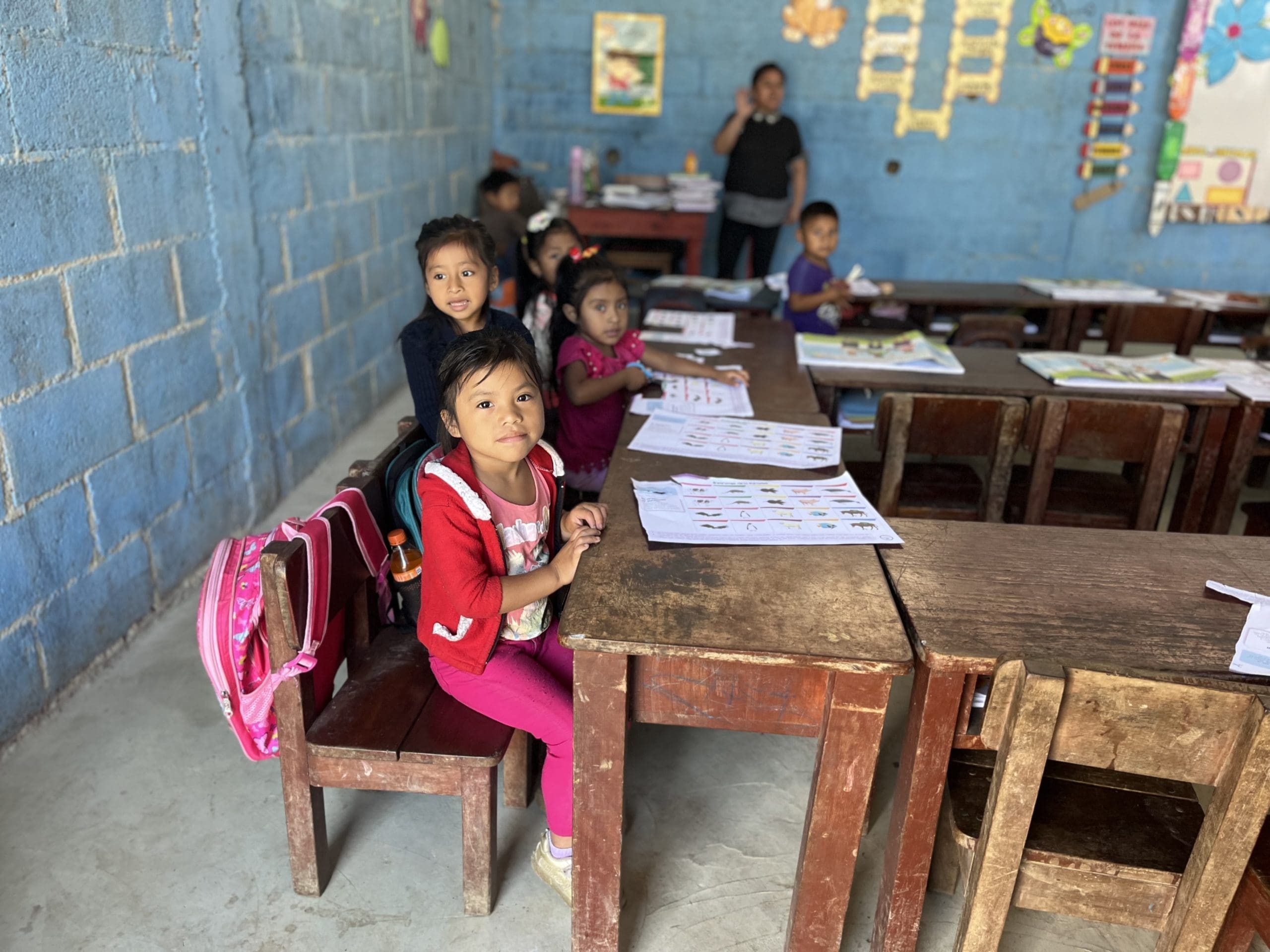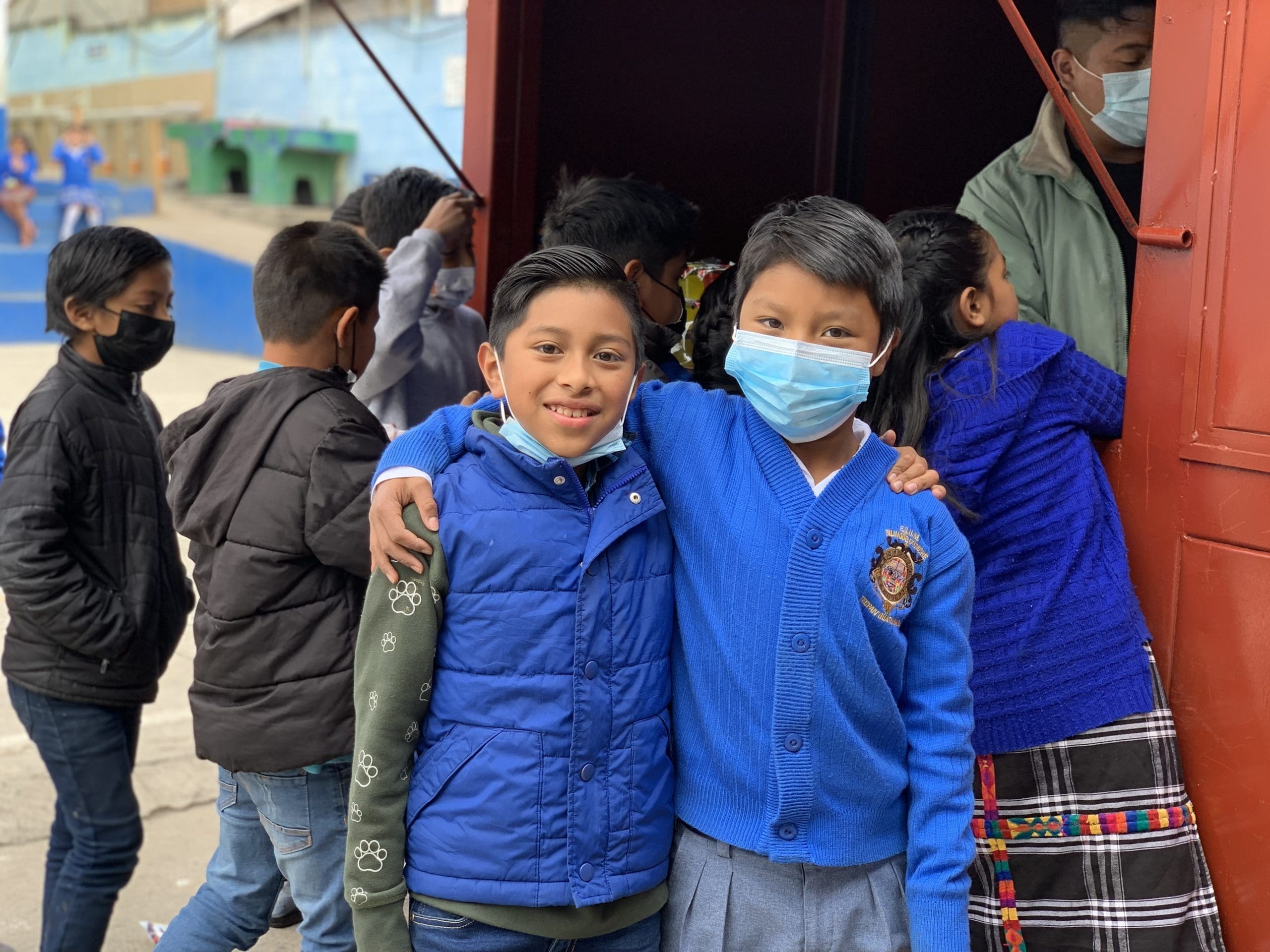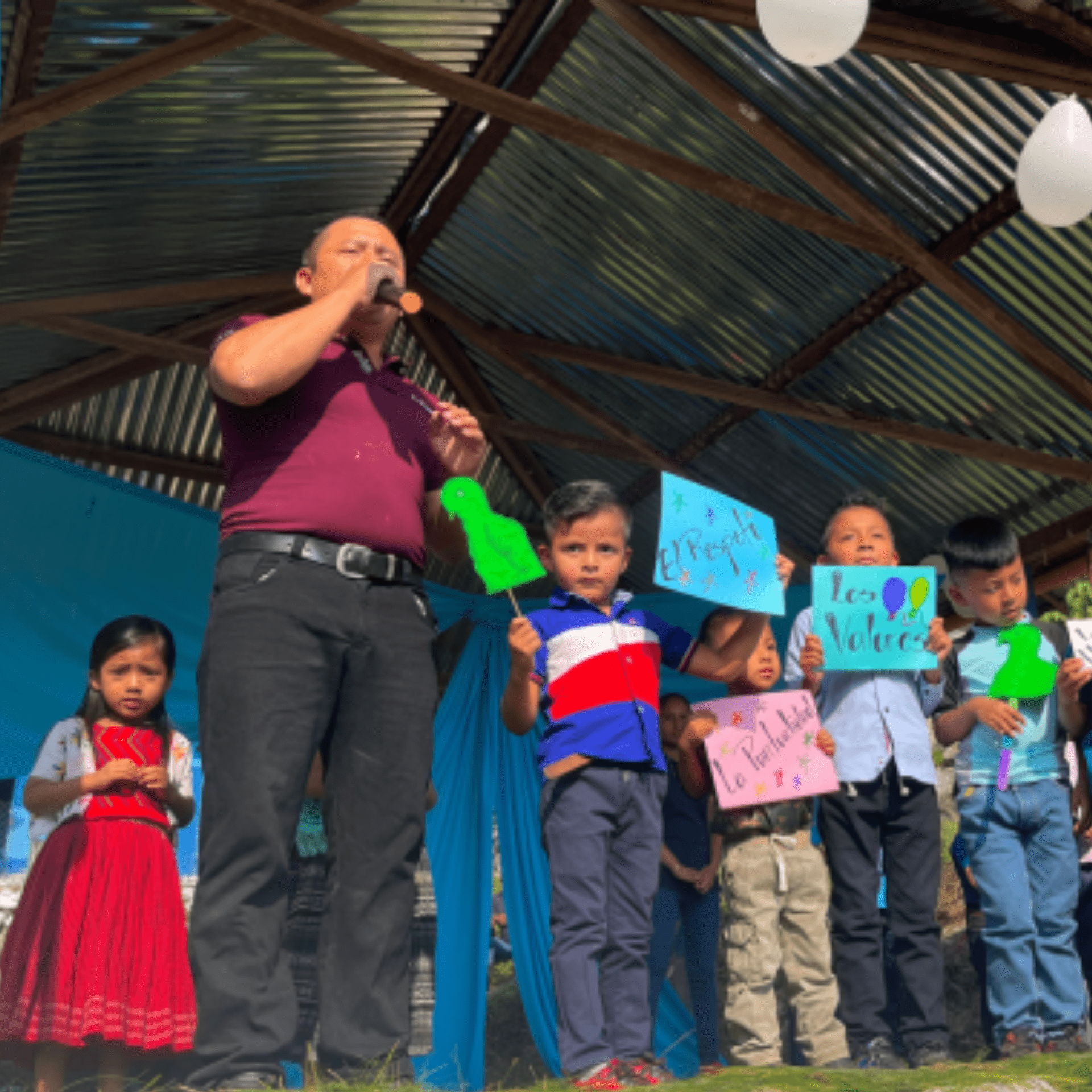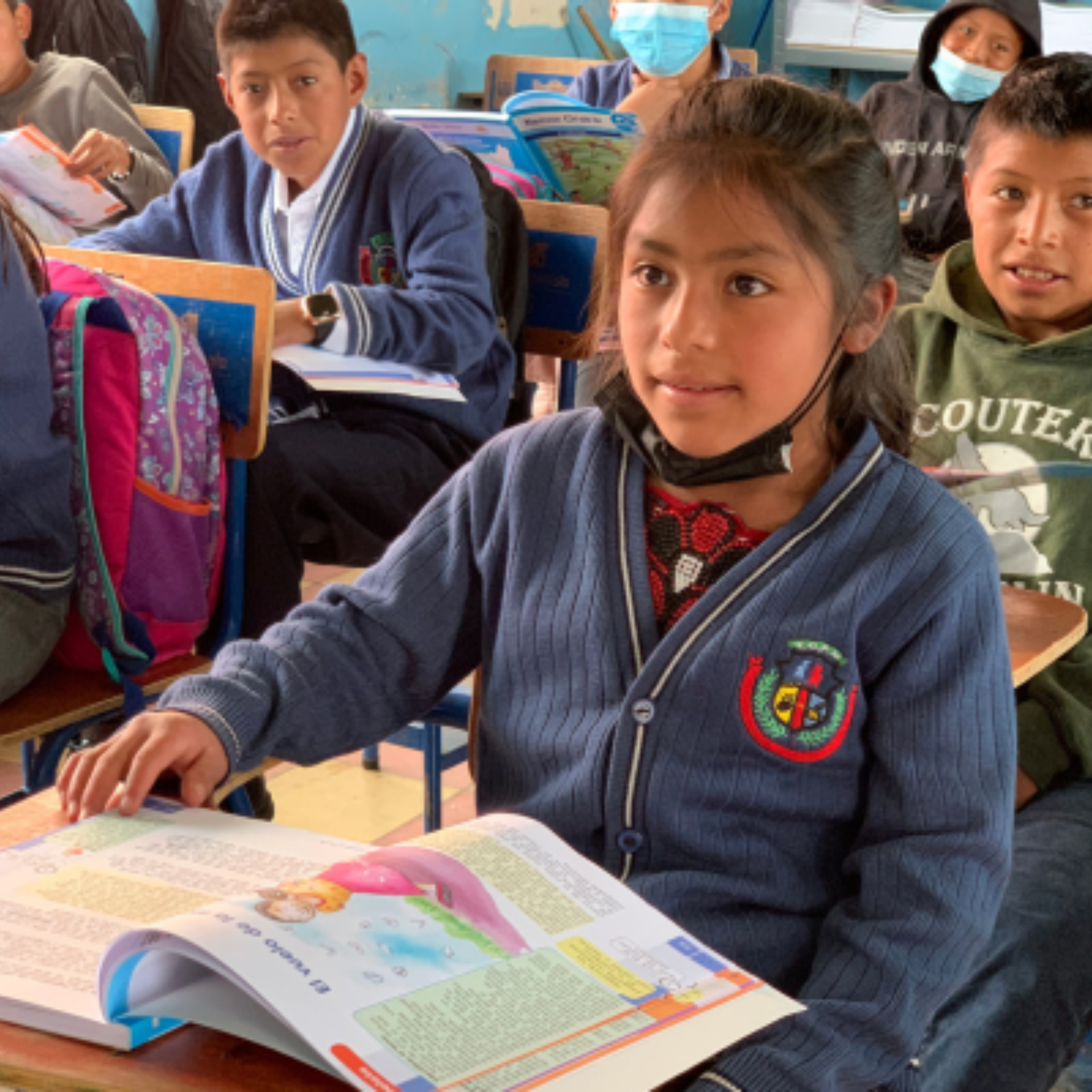
Mission logbooks: discover Guatemala through our bilingual education project
I’ve just returned from Guatemala, where I visited schools supported by our bilingual education program. The purpose of my visit was to make a video to show you the importance of this program for Mayan children. As it is still being edited for the time being, let me share with you the highlights of this discovery journey!
At the end of a bumpy dirt road, which cannot be used during the rainy season, we arrive at the Aldea Seacte rural school, located in a small settlement/between 2 churches.
It’s Monday, a Civic Day dedicated today to the importance of the mother tongue: in the schoolyard, pupils are standing in single file, singing the national anthem with their hands on their hearts. The younger children’s class is responsible for today’s speech, which focuses on Mayan values.
Some fifteen parents are currently installing fences around the school. Community solidarity is essential in this country, where everyone has to get by as best they can; the State is weak and corrupt, and it is often the parents who must take care of repairing the infrastructure. There is a shortage of desks, textbooks, water sources, toilets, etc., in schools.
We talk to Ariel Choc, the school’s principal, who is very committed to the success of his pupils. The main language spoken here is Q’eqchi’, one of the 22 Mayan languages. The children speak Q’eqchi’ at home and don’t understand Spanish, which is Guatemala’s official language. Teachers have to manage multi-level classes with very large numbers of pupils. The school principal explains that Enfants du Monde’s bilingual school material is very useful for teachers, as it is designed both in Q’eqchi’ and Spanish. It also takes into account regional linguistic variants of Q’eqchi’.
The second school we visit is an urban school located in the department of Chimaltenango, closer to the capital. Spanish is the main language spoken by the majority of children in this school, as their parents did not teach them the Mayan language Kaqchikel, spoken by their grandparents and by people living in more rural areas of the region. The children are aware that learning to read and write in Kaqchikel will enable them to communicate more easily with their families, and to find work in other regions. They are also keen to learn English, which may allow them to emigrate to the USA, as some of them dream to do.
The children are excited to talk to me, and crowd in front of me to be interviewed, but they all fall silent when I unfold my tripod and start asking them questions – yet, I’m filming with a cell phone, a far less intimidating object than a professional camera!
There’s nothing like a game of cards – I borrowed a deck from my children upon leaving – to build trust and bring back their smiles!
The rest of this very hectic mission includes meetings with local associations and the Ministry of Education, with whom we were happy to renew our commitment to support bilingual education in the country. As I’m sure you rather see pictures of children than those of meetings, I’ll stop my story right here!
I hope I was able to give you a little more insight both into the local realities of the country, and the importance that this education program has for Mayan children!
About Guatemala
Guatemala, like many Latin American countries, faces multiple challenges. It is Central America’s most populous country, with over 17.3 million inhabitants. Income inequalities are among the worst in the world, with 260 families holding 57% of the country’s wealth. It is a transit point for drugs, migrants, money, and weapons. The justice system is inefficient and corrupt. Guatemala’s malnutrition rate is very high, as the country ranks 127th in the world.

My donation makes a difference
I offer a bilingual French and Mooré (local language) textbook to 8 children in Burkina Faso to help them better progress in school.
I allow 250 pregnant women in Bangladesh to be prepared for the birth of their babies and the risks associated with their childbirth.
I finance continuing education in bilingual education to 10 teachers in Guatemala to improve the quality of their lessons.






